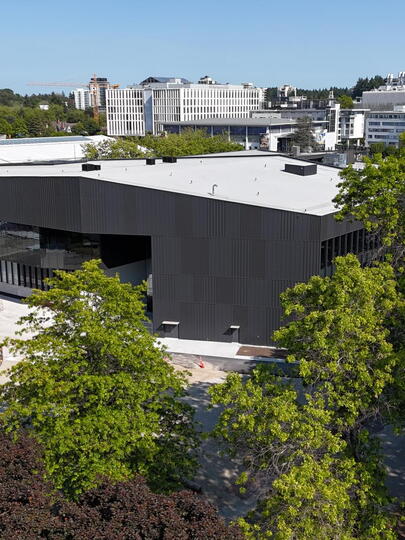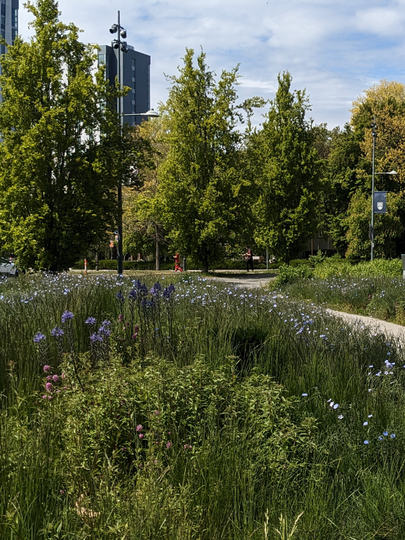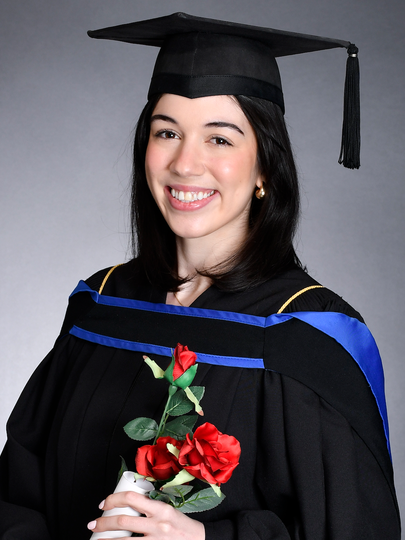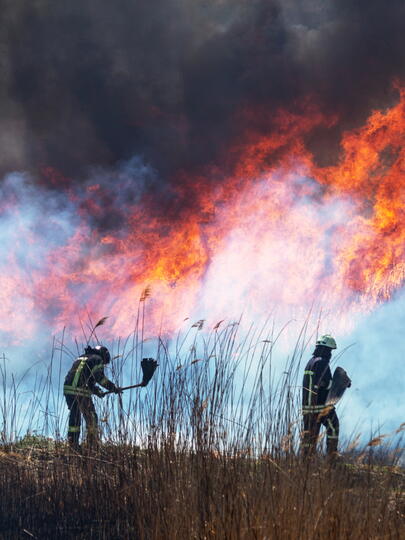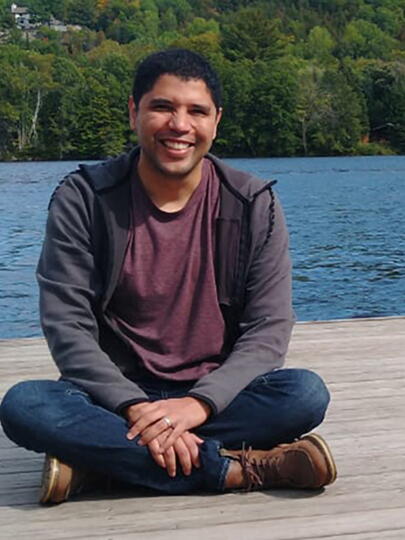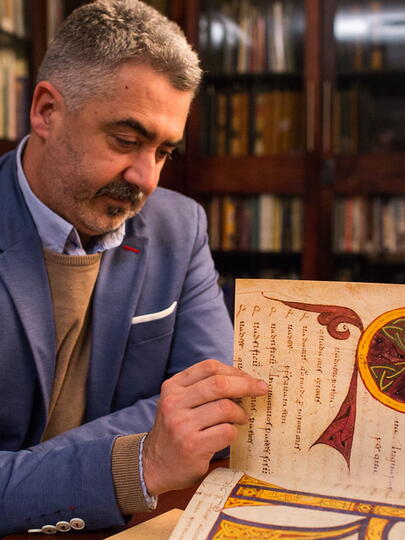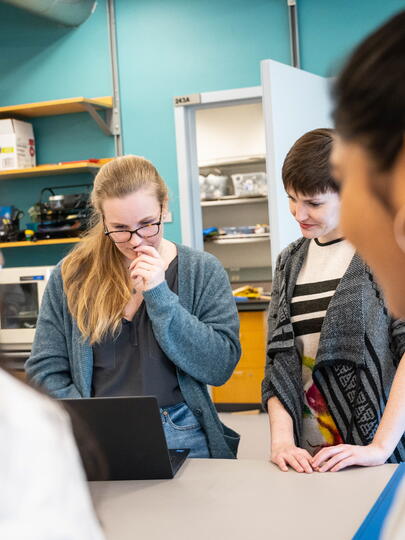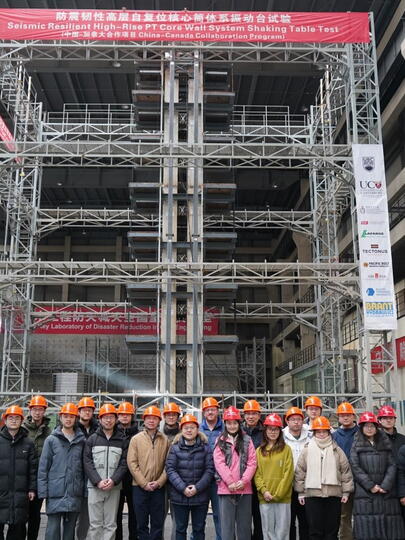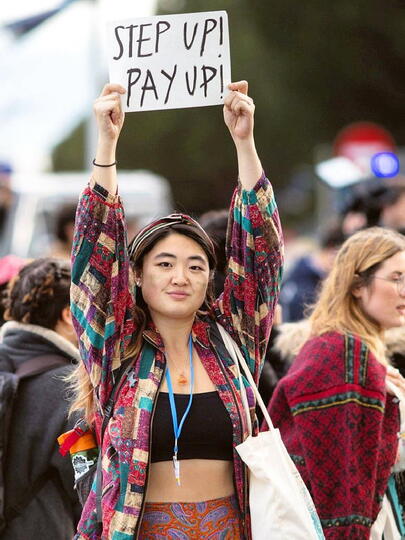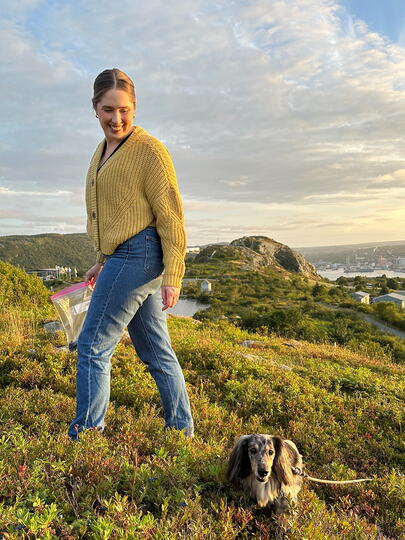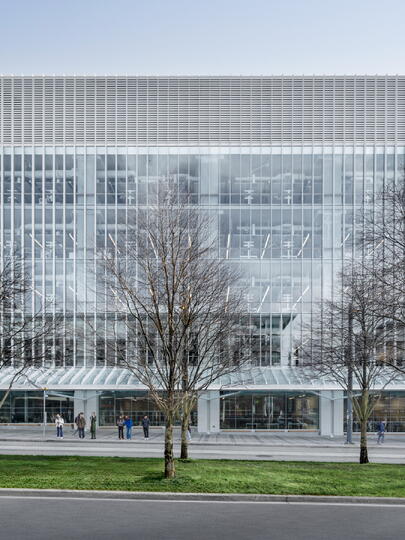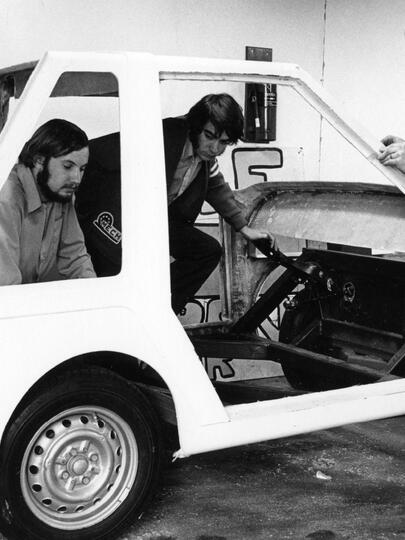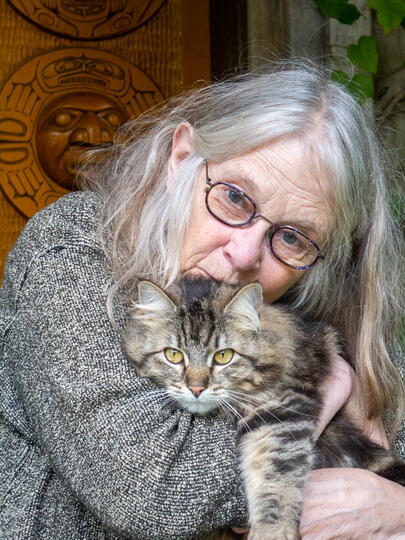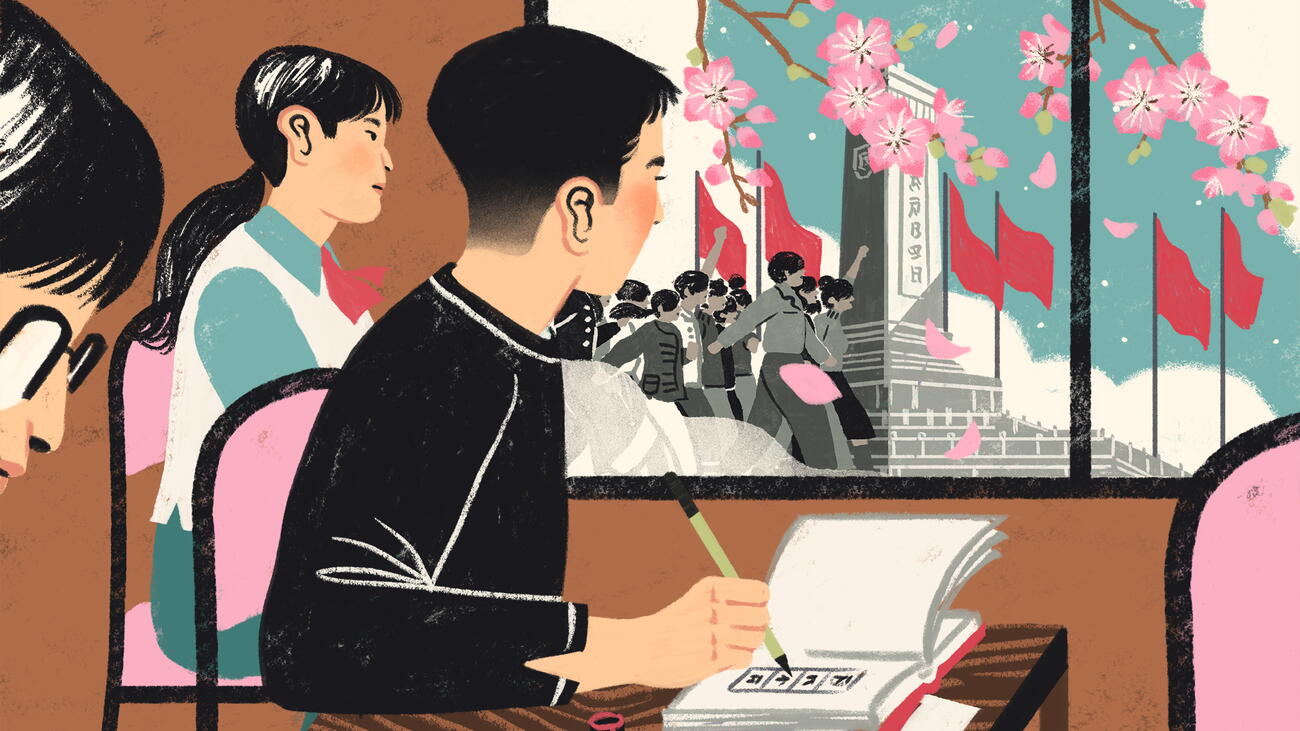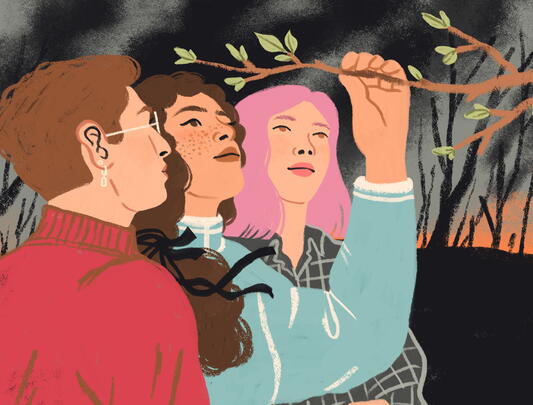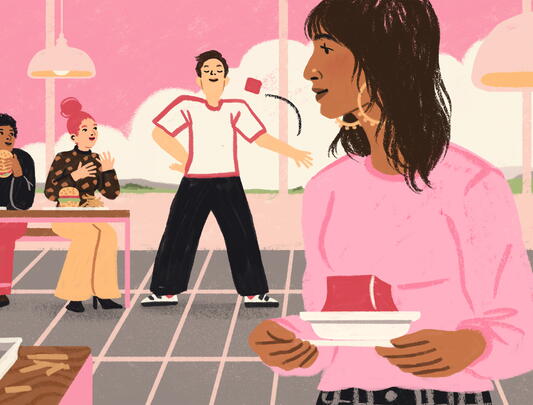Short Fiction
2025 Winner: Magnificence
We met in the Buchanan Building every weekday in those early summer months of 1989. In the first week we were all eager and would arrive early, peering into the classroom through a peephole window crossed by a grid of wires, and then pushing against the heavy door. We’d settle down on steel chairs fixed to the classroom floor, flip up our desktops, and take out our Practical Chinese Readers.
The rear seats always filled up first, leaving latecomers at the front. Wind stirred the leaves of the catalpa trees outside, kneading light. Patterns formed and shifted on the grey linoleum floor. Mrs. Hsieh would arrive, turn her back to us, and scratch out characters and their transliterations in white chalk on the dark green board. Then she’d turn to face us. We’d greet her and then pick up our textbooks, their green covers also patterned with leaves, the cursive characters of their titles in vertical boxes just like the peephole window in the door. Our fingers flipped through their pages, startling up words, tables, and pictures like a flock of birds into flight. They settled at the beginning of Chapter 42. Each of us read out loud in turn.
Gubo and Palanka are visiting Beijing, we read. They are exploring the sights. Today they are at Tiananmen Square. In the middle is the Monument to the People’s Heroes. To the west is the Great Hall of The People. To the east is the Chinese History Museum. So meili. So beautiful. So zhuangli. So magnificent. What is the difference between meili and zhuangli? Mrs. Hsieh asked us. We looked down at our open books and did not meet her eyes. She waited, and then continued. A difference of degree, she told us, and of feeling. The flowers in their beds are meili, are beautiful. The Monument to the People’s Heroes in the Square is zhuangli, magnificent, because of the martyrs’ sacrifice.
In those early classes, we did not talk of the other Square, the other Gate, the other Monument, the sights that flickered through our television screens each evening on CNN, and fixed themselves in photographs in the morning newspapers. In this Square, students and workers milled around, carrying banners. The Monument to the People’s Heroes was covered first by a mourning photograph of Hu Yaobang in black and white, framed by couplets and flowers. Then, as the protests grew, it was wrapped up in banners. We struggled to decipher them, and the slogans the marching students carried, copying out the characters, looking up the radicals, counting off the strokes. Qinghua University Foreign Language Department. Dialogue! Don't Be a Flower in a Vase. Democracy and Freedom.
In the afternoons, our fingers would ache. We had devoured our textbooks all morning and were sleepy. The sun went in. Gubo and Palanka were like ghosts. The Tiananmen Square they walked in was immaculately clean. They strolled by the Monument and up to the Gate itself. The Gate, an old man told them, was more than 30 metres high. The square could hold a million people. The Great Hall could sit thousands. Feudalism and Capitalism had been abolished. All was well.
At this point Mrs. Hsieh’s face puckered up. She took a deep breath and broke off. Relief washed over us. We were the non-heritage class, our heads a sea of black with islands of red, gold, and grey. The pace of the class was fast, and the homework unrelenting. Our Chinese had already been planed and trimmed over the last two semesters of the regular school year. Residual Cantonese speakers no longer spoke of salmon as sanmanyu, but as guiyu; Southeast Asian migrants’ children now knew that a bus is gongonggiche, not a base. But many of us struggled to keep up with the syllabus, stuttering nervously when we read out. So we were happy that Liu Huiling, whose Mandarin, drilled in a Chinese primary school in Malaysia, was the best in the class, distracted Mrs. Hsieh when she paused.
Hsieh laoshi, is it true that you grew up in Beijing? Before Liberation?
She’d hesitate, but she’d take the bait and tell us of her childhood in a courtyard house. About the ship, crammed with refugees, that took her to Taiwan as a teenager, and then her later journey here, her first flight, across the Pacific, to the very end of the world. And then she’d pause, sigh, remember where she was, remember the Square, and ask the next of us on her list to read.
In the first week of class, we only knew each other by our Chinese names. In lunch breaks at the SUB, sitting in small circles, we’d shyly exchange our names in English. Liu Huiling was Stacy Law; Huang Ya Lan was Heidi Wang; Zhang Jianwen was Kian Woon Teo (“but call me Ken”); Ma Taimu was Tim Matheson. We shared the contents of our lunch boxes. We showed each other our new dictionaries and our flash cards, compared the spidery characters that we’d written out again and again the night before. We’d laugh and dodge the sudden showers and return to class.
Each night we tried to do homework but end up watching television; each morning we read the newspapers. We’d see a surge of humanity in the Square. The open hand of dialogue, and then the fist of tanks on the roads outside the capital. Each day we’d return to class. We’d read, write, and speak. We’d learn new grammatical forms. The modal particle ba, which softens advice or commands. Study, ba. Remember. Witness. If we can do nothing about the other Square, let us at least do this. Learn. Store things away for a future we cannot know, as students have always done.
At weekends, some of us attended protests on campus or downtown. At lunchtime, as the weeks moved forward, we tried to talk together in Chinese. The students had brought a plaster statue of the Minzhu zi Shen, the Goddess of Democracy, into the Square. She towered above the Monument, above the Mausoleum. She was all white; she carried a torch; her hair was blown back by the wind.
They shouldn’t do this, said Li Qimian. They shouldn’t bring this piece of America into the square.
It’s not simply American, it’s a universal..., objected Zhang Jianwen. As he fumbled for a word, Liu Huiling provided it — yuan li — principle, even though she was unsure if she agreed.
Our double lives moved forward. Our lunch breaks stretched longer, and the group that gathered in the SUB thinned out. We’d return late for class, and trip on the worn stairs, sandals flapping on linoleum risers capped with battered metal treads. Li Qimian and Guo Wanling were often delayed. They’d return separately, even though we knew they were together. They’d run into each other on Wreck Beach, each on that first meeting staring into the other’s face, eyes not daring to look down. Later they’d walk together, hand in hand, the water lapping at their ankles. Li Qimian noticed that Guo Wanling had keloids on the upper arm, scratches like the na stroke in a Chinese character, the one that presses and falls away. A week later, they’d trace the scars in darkness, under the sheets, fingers touching together and falling down the axes of each other’s bodies, from lips to the thighs.
Where are Guo Wanling and Li Qimian? Mrs. Hsieh asked us, when it was their turn to read.
They are exploring the sights, Liu Huiling replied, and our faces scrunched up as we tried not to laugh.
And then, after six weeks, the class was over, and we went our separate ways. The Square was already empty: it had become the clean, silent Square of our textbook once again. We rubbed our eyes: we no longer saw with double sight.
***
We did not keep in touch much in the years after that. Chance meetings on the SkyTrain or a restaurant, or an airport lounge in Vancouver, Hong Kong, or Taiwan. Some of us stayed put. Life blew others off course and then back again, across oceans, to the campus that for us would always be on the edge of the world.
The future that Mrs. Hsieh told us about scrolled by. Years later, in another century, airports, shops, workplaces, and classrooms suddenly closed. For some of us, remembering that summer long ago, something began to throb. We’d touch our arms and realize we were tracing the lines of scars. In late March, Guo Wanling and Li Qimian came back to campus and stood in front of the Goddess of Democracy statue by the Bosque. The trees were black and bare, just beginning to bud. They adjusted the masks on their faces in the rain, but Li Qimian’s glasses still steamed up. Their hair was flecked with grey. They shivered. Their joints ached. Someone had placed a photograph of Li Wenliang, the doctor from Wuhan who gave the warning about COVID, at the base of the statue. Couplets and garlands of white flowers were disintegrating in the rain.
They hold hands. They still cling to those words they learned in the classroom that summer, almost half a lifetime ago. Mandarin is a language that they use, awkwardly, with older relatives. A secret language when they travel in America, in train cars and in elevators, when they do not want to be overheard. A public language in China, when they stop and ask for directions: in Taiwan, too, and even now in Hong Kong. As we age, it becomes less easy to hold a word in mind. Tones slip. Characters crumble and vanish and run away beneath our pens. We sketch out radicals but cannot remember the remaining strokes. So our characters are full of holes. Bai zi xiansheng, we call each other, Mr. White Character: at least Guo Wanling and Li Qimian have a companion to complete each other’s words. As we age there are prosthetics and walking aids. We use apps now, online dictionaries, instant translation, optical character recognition: our fingers hover and settle on tiny handheld screens, on this promontory at the end of the world.
Their faces are wet now, but not from the rain. Witness. Study. The modal particle ba. Remember the distinction between beauty and magnificence. The flowers are broken; they are not beautiful. The monument is small and stained; it is not magnificent. And yet beauty and magnificence are there.
The alumni UBC Short Fiction Contest
“Magnificence” was chosen as one of three finalists from over 70 entries in alumni UBC’s second annual short fiction contest for alumni. Many thanks to UBC’s School of Creative Writing and UBC Okanagan’s Faculty of Creative and Critical Studies for their support.


